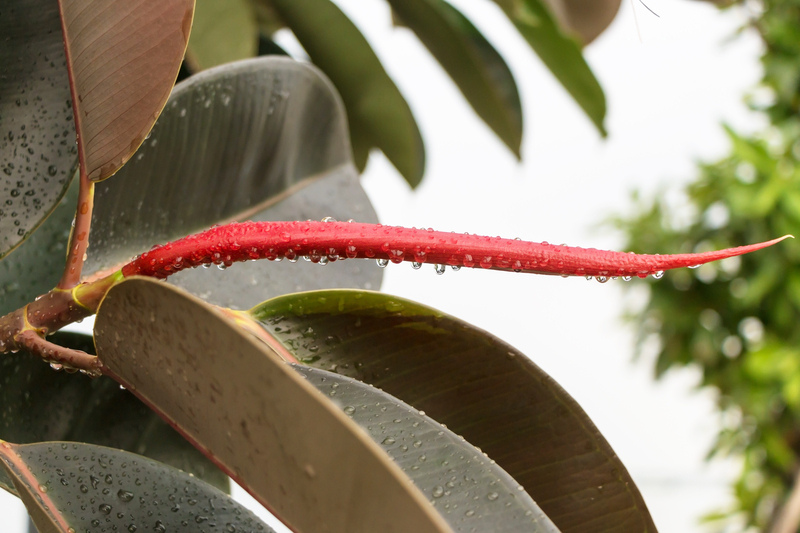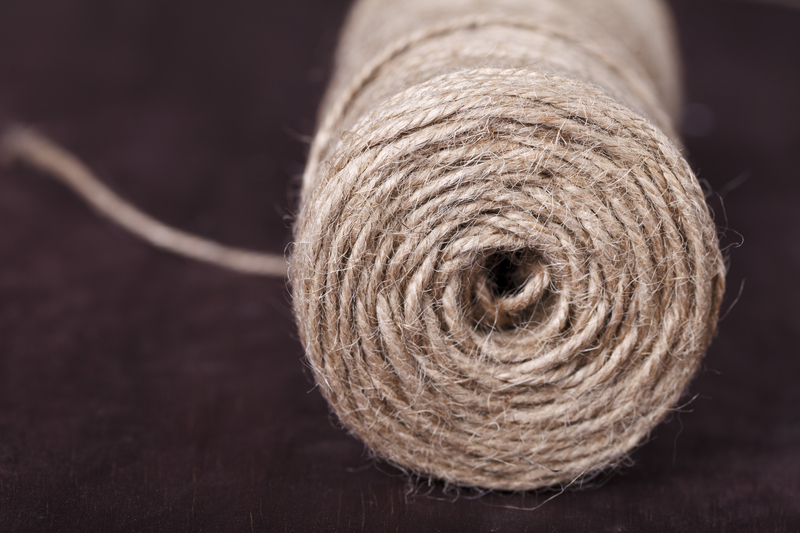9 Vital Gardening Tips to Cultivate Your Green Thumb
Posted on 05/06/2025
9 Vital Gardening Tips to Cultivate Your Green Thumb
Ready to unlock your inner gardener? Gardening is a rewarding hobby that brings beauty, joy, and even fresh food into your life. Whether you're a newbie or looking to refine your skills, harnessing the right gardening techniques and a thoughtful approach can transform your garden into a lush paradise. Read on for nine essential gardening tips that will help you nurture your plants, enrich your soil, and cultivate a true green thumb!
1. Choose the Right Plants for Your Climate
Before you even plant a seed, the foundation of successful gardening starts with choosing plants adapted to your local climate and soil conditions. Every plant has unique requirements for sunlight, temperature, and humidity.
Why Local Adaptation Matters
- Better survival rates: Locally adapted plants handle pests, diseases, and weather fluctuations more easily.
- Lower maintenance: Plants suited to your area naturally thrive, reducing the need for fertilizers and pesticides.
- Biodiversity support: Native plants attract beneficial pollinators like bees and butterflies.
Visit local nurseries, speak with extension agents, or use planting zone maps to discover which varieties will flourish in your garden. Research pays off with healthier, hardier plants!

2. Plan and Prepare Your Garden Bed Thoughtfully
Preparing the ground is crucial when developing your green thumb. A little extra work up front saves headaches down the road.
Steps to Prepare Your Planting Area:
- Clear the soil: Remove weeds, rocks, and debris to give roots space to expand.
- Test your soil: Assess pH and nutrient content with a quality test kit (available at most garden centers).
- Amend as needed: Based on results, enrich your plot with organic matter such as compost, aged manure, or peat moss.
- Loosen the soil: Use a fork or tiller to aerate soil and prevent compaction, essential for root health.
Thoughtful preparation leads to healthier, more resilient plants--and more abundant harvests.
3. Master the Art of Proper Watering
Overwatering and underwatering are two of the most common gardening mistakes. Mastering the science of watering is one of the most vital gardening tips to develop a true green thumb.
Guidelines for Effective Watering:
- Check the soil: Insert your finger into the soil up to the first knuckle. If it feels dry, it's time to water.
- Water early: Water in the early morning to reduce evaporation and prevent fungal diseases.
- Deep soaking: Water slowly and deeply (rather than infrequently) to encourage deep root growth and drought resistance.
- Avoid overhead watering: Water at soil level to protect leaves and decrease disease risk.
Remember: Different plants have different water needs. Monitor the specific requirements of your green friends to keep them thriving.
4. Feed Your Soil, Not Just Your Plants
Soil is the life-blood of any garden. Healthy soil equals vigorous, productive plants. Instead of relying solely on chemical fertilizers, focus on feeding your soil with organic matter.
How to Improve Garden Soil:
- Add compost: Regularly incorporate homemade or store-bought compost to boost nutrients and soil structure.
- Use mulches: Organic mulches like straw or wood chips suppress weeds, retain moisture, and add nutrients as they decompose.
- Practice crop rotation: Rotating crops every season helps prevent disease build-up and replenishes soil nutrients.
- Apply organic fertilizers: Fish emulsion, seaweed, or manure teas are gentle yet effective at nourishing your soil.
Nourishing your soil is one of the most reliable gardening habits for developing a legendary green thumb.
5. Embrace Mulching for Plant Health and Weed Control
Mulching is an invaluable secret weapon for any aspiring gardener. Mulches not only block weeds, but also help regulate soil temperature and retain vital moisture.
Benefits of Mulching:
- Reduces watering needs by slowing evaporation
- Prevents soil erosion during heavy rains
- Helps suppress weeds, saving time and effort
- Gradually enriches soil as organic mulch breaks down
Apply a two- to four-inch layer of mulch around the base of plants. Be sure to keep mulch a few inches away from stems and trunks to prevent rot.
6. Prune Wisely to Promote Healthy Growth
Proper pruning is a vital skill for gardeners hoping to cultivate a green thumb. Pruning encourages new growth, shapes your plant, and improves air circulation--helping prevent disease.
Pruning Best Practices:
- Use sharp, clean tools to prevent injury and reduce disease spread.
- Prune dead or diseased branches first to support plant health.
- Shape gently, avoiding over-pruning, which can stress the plant.
- Schedule pruning according to plant type; many shrubs and fruit trees benefit from late winter or early spring pruning.
Be patient: Effective pruning can take plants a growing season or two to show their best results.
7. Fight Pests and Diseases the Eco-Friendly Way
Every gardener faces pests and diseases. However, you can minimize damage and protect your harvest with natural, sustainable practices rather than harsh chemicals.
Natural Pest Control Techniques:
- Encourage beneficial insects like ladybugs and lacewings, which feed on harmful pests.
- Plant companion species: Marigolds deter nematodes, and basil wards off aphids near tomatoes.
- Use physical barriers such as row covers or netting to protect crops.
- Remove affected leaves promptly to halt disease spread.
- Try organic sprays such as neem oil, insecticidal soap, or garlic spray for minor infestations.
Consistent, eco-friendly pest management is a hallmark of every successful garden.
8. Practice Consistency: Maintain a Regular Gardening Schedule
One of the vital gardening tips for long-term success is regularity. Make gardening a habit rather than a once-in-a-while activity.
How to Stay Consistent:
- Set aside specific times each week for watering, weeding, and checking for pests.
- Keep a gardening journal to track planting dates, growth progress, and troubleshoot issues.
- Observe and interact with your plants; the more you pay attention, the earlier you'll spot and solve problems.
Plants thrive on consistent care and attention--it's what truly develops your green thumb over time.
9. Keep Learning and Experimenting
No matter your experience level, gardening is full of surprises. One of the most rewarding gardening tips for cultivating your green thumb is to embrace continual learning and don't be afraid to experiment.
Ways to Expand Your Gardening Knowledge:
- Read books, watch tutorials, and join online gardening communities.
- Attend local workshops or garden club meetings.
- Journal your successes and setbacks to improve each season.
- Try growing something new, whether it's an heirloom vegetable, a unique flower, or an indoor plant variety.
Every gardener grows with their garden. Stay curious, and you'll always find more to discover.
Bonus Gardening Tip: Celebrate Your Successes
Remember: every blossom, fruit, or thriving leaf is the result of your effort. Take time to enjoy the peace, beauty, and abundance your garden brings. Sharing your bounty with friends and neighbors can inspire others to start their own journey toward developing a green thumb!

Frequently Asked Questions About Gardening for Beginners
What are the most essential tools for new gardeners?
- Hand trowel: Great for planting and transplanting.
- Pruning shears: Keeps plants groomed and healthy.
- Watering can or hose: Ensures plants get enough hydration.
- Garden gloves: Protects your hands from thorns and soil.
- Garden fork: Loosens and turns soil for optimum roots.
How much sunlight do most gardens need?
Most vegetables and flowers require at least 6-8 hours of direct sunlight per day. Some leafy greens and shade plants can thrive with less. Check each plant's sunlight needs before planting.
How do I start an organic garden?
- Use only organic soil amendments and pest controls.
- Avoid synthetic fertilizers and pesticides.
- Select non-GMO, organic seeds and plants where possible.
- Build up compost over time for soil health.
Conclusion: Embrace These Gardening Strategies for a Flourishing Garden
Gardening is both art and science, requiring patience and dedication. By following these 9 vital gardening tips--from planning and soil care, to watering, pest management, and continual learning--you'll be well on your way to cultivating a vibrant, thriving garden. Each season brings new challenges and rewards, and with persistence, you'll turn your passion into a lifelong skill.
Ready to grow your own paradise? With these practical tips to cultivate your green thumb, every gardener can reap a garden full of color, flavor, and joy. Happy gardening!
Latest Posts
Creating a Relaxing Seating Oasis in Your Garden
Economical and Simple Garden Solutions with Low Maintenance Needs
Uncovering the Climate Change Combat Strategy: Gardening
Enchant Your Senses with Calming Zen Garden Ideas for Outdoor Bliss

